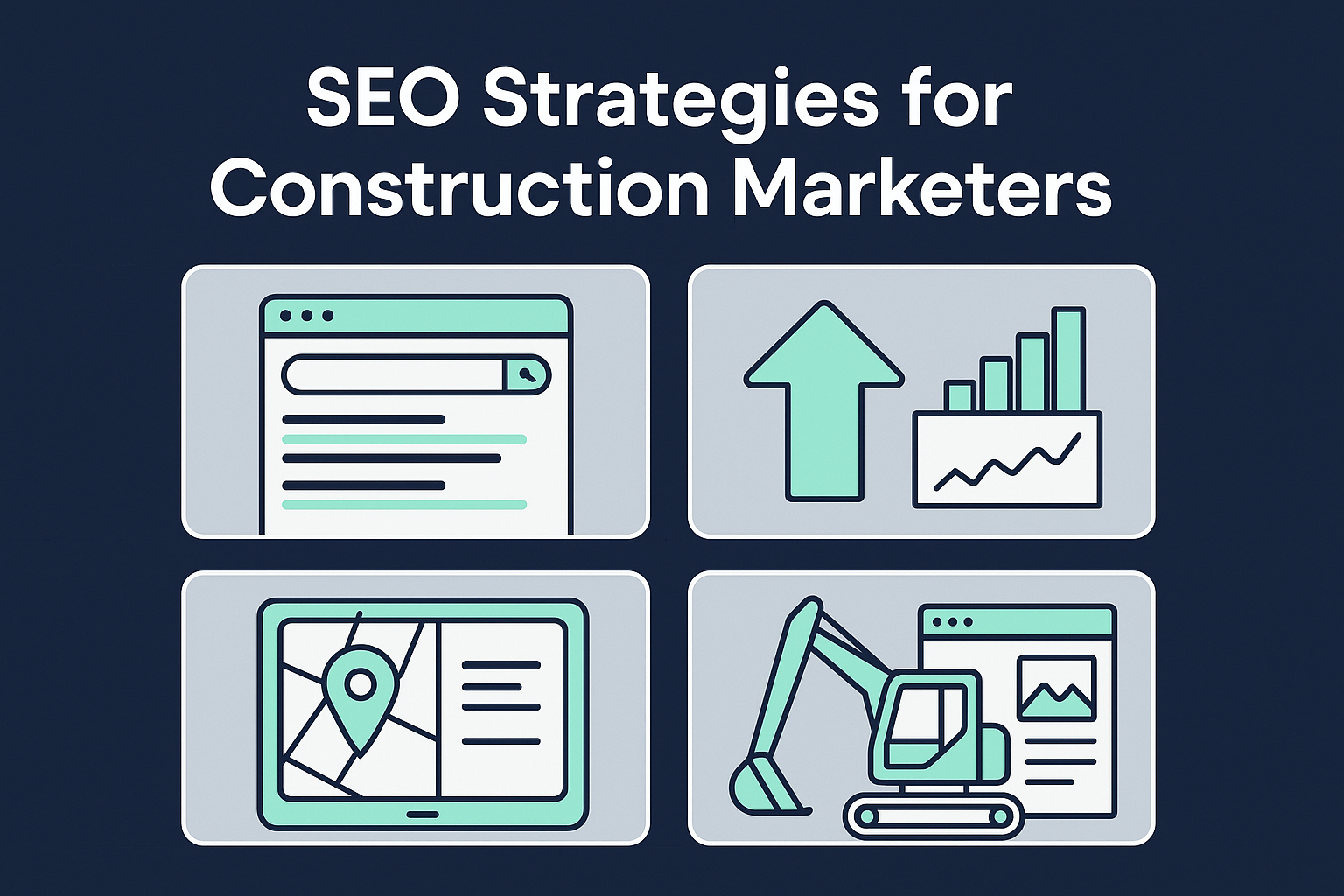Schedule a Demo
In my work with operations managers in the construction industry, I've seen how crucial it is to have a robust SEO strategy to stand out in a competitive market. SEO for construction companies isn't just about ranking higher; it's about connecting with potential clients who are actively searching for your services. The key is to focus on keywords that align with the specific needs of your target audience, like 'construction project management software' or 'construction marketing services'.
Based on available research, individual results may vary, but a well-optimized website can significantly increase visibility and lead generation. For instance, using long-tail keywords such as 'best construction software for small businesses' can attract more qualified leads. It's also important to consider the local aspect of SEO, as many construction projects are location-specific. Leveraging local SEO tactics can help your business appear in searches for 'construction companies near me' or 'construction services in [city name]'.
One effective strategy I've implemented with clients is to create content that addresses common questions and concerns in the construction industry. This not only helps in ranking for relevant keywords but also establishes your brand as a thought leader. For example, a blog post titled 'How to Choose the Right Construction Software for Your Business' can attract searches looking for guidance on this topic.
Keyword research is the cornerstone of any SEO strategy. For construction marketers, it's essential to identify keywords that your potential clients are using. Tools like Google Keyword Planner or SEMrush can provide insights into search volume and competition for phrases like 'construction management solutions' or 'construction project management tools'.
Once you've identified your target keywords, the next step is to strategically implement them across your website. This includes optimizing your meta tags, URLs, and content. For example, if you're targeting the keyword 'construction software solutions', ensure it appears in your page titles, meta descriptions, and within the body of your content where it fits naturally.
It's also important to consider the user intent behind the keywords. For instance, someone searching for 'construction project management software' is likely in the research phase, looking for options to compare. Tailoring your content to address their needs at this stage can improve your chances of converting them into a lead. Remember, SEO is not just about ranking; it's about providing value to your audience.
Content marketing plays a vital role in SEO for construction companies. High-quality, informative content can help you rank for your target keywords while also engaging your audience. In my experience, creating case studies, how-to guides, and industry reports can be particularly effective. For instance, a case study on 'How XYZ Construction Improved Efficiency with Our Software' can showcase your expertise and solutions.
When creating content, always keep SEO in mind. Use your target keywords naturally within the text, but don't overdo it. The goal is to provide valuable information that answers your audience's questions. For example, a blog post on 'Top Trends in Construction Technology' can incorporate keywords like 'construction technology trends' or 'latest construction software' to improve its SEO performance.
Additionally, consider the format of your content. Videos, infographics, and interactive tools can enhance user engagement and shareability, which can indirectly boost your SEO. For example, a video tutorial on 'How to Use Construction Management Software' can attract viewers and encourage them to explore more of your site.
SEO is an ongoing process, and it's crucial to measure and adjust your strategy based on performance. Use tools like Google Analytics to track your website's traffic, keyword rankings, and conversion rates. For instance, if you notice that 'construction project management tools' is driving significant traffic, you might want to create more content around this keyword.
It's also important to stay updated with the latest SEO trends and algorithm changes. Google's updates can significantly impact your rankings, so staying informed can help you adapt your strategy accordingly. For example, the recent focus on E-A-T (Expertise, Authoritativeness, Trustworthiness) means that content quality and user experience are more important than ever.
Finally, don't be afraid to experiment and test different approaches. SEO is not a one-size-fits-all solution, especially in a niche like construction. What works for one company may not work for another. Continuously refining your strategy based on data and feedback will help you achieve the best results over time.
